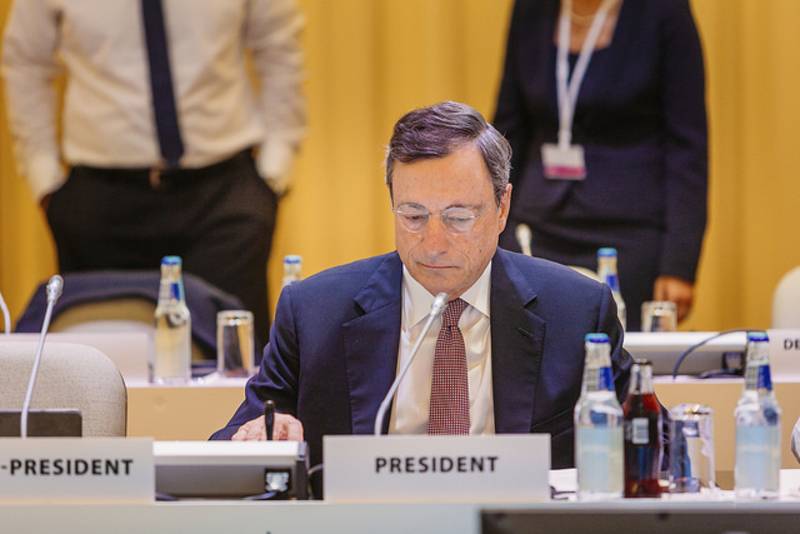The Lesson from the Crisis according to the World Bank: Adequate State Interference in the Financial Sector
Zhaneta Kuyumdzhieva, trainee, October 9, 2012
 The crisis was the reason for urgent development of policies and reforms to tackle its evolution and its negative effects, and to protect the countries from another set of similar events. “Four years later, with banking woes ongoing in various parts of the world (most notably in the euro area), it is a good time to evaluate these reforms and their likely contribution to long-run financial development.” This was the task of the World Bank experts who drafted the report “Rethinking the Role of the State in the Finances”. The report studies the situation of 200 economies around the globe and their state before and during the crisis.
The crisis was the reason for urgent development of policies and reforms to tackle its evolution and its negative effects, and to protect the countries from another set of similar events. “Four years later, with banking woes ongoing in various parts of the world (most notably in the euro area), it is a good time to evaluate these reforms and their likely contribution to long-run financial development.” This was the task of the World Bank experts who drafted the report “Rethinking the Role of the State in the Finances”. The report studies the situation of 200 economies around the globe and their state before and during the crisis.
Despite the superficiality of the notion “the worse, the better”, the downfall of the global financial and economic system provided reasons for a healthy review of the general framework. A number of changes took place, and a number of other changes is in the row but, nevertheless, the crisis in the eurozone goes on and raises the question: Are the reforms adequate enough and will they suffice to prevent the occurrence or at least the scale of future crises? The focus issue in the analysis is how optimally to balance the various roles of the state as engine of processes, owner, legislator and supervisor.
The experts reasonably point out that sometimes increased security and state control of the financial sector could be expensive for the taxpayers. In other cases, state intervention for solving a market problem could lead to even heavier market distortions. There is a significant risk also in the justification of state control. There are governments that do not necessarily use their regulatory powers to protect the public interest or to remove market imbalances. Sometimes members of the government use their power for reasons that are far from altruistic, such as helping their friends, families, relatives or voters.
The identification of the right proportion of state intervention and the way to do it is a complex and important task: speaking of the role of the state, there is no single cure. The less developed countries, despite that they offer a larger space for manoeuvring, could also easily fall victim to the various risks linked to state intervention. This is based on the suggestion that states that are not sufficiently developed often have less effective institutional frameworks. According to an unofficial survey among state representatives and financial experts in 78 countries (23 developed and 55 developing), conducted by the World Bank for the purpose of this analysis, there is almost equal division between the pros and cons related to the need of a more comprehensive regulation and supervision, of an increased competition in the financial systems of the countries, of the role of the state in promoting information exchange.
54% of the respondents have given their voice in support of a more comprehensive regulation and supervision in the financial sphere, 58% have agreed that competition in the sector could contribute to the recovery processes in their countries and 64% believe that loans that are guaranteed by the state would have a positive role in the stabilisation.
More effective regulation and supervision
The study of the regulatory and supervisory function of the state in the World Bank report confirms that the countries where the global financial crisis originated had weaker regulation and supervisory practises (for example, less stringent definitions of capital, less stringent provisioning requirements, and greater reliance on banks’ own risk assessment), as well as less scope for market incentives (for example, lower quality of financial information made publicly available, more generous deposit insurance coverage).
The follow up of the system changes during the crisis testifies that there are actions taken to eliminate (or at least to soften) each of the above mentioned weaknesses.
There is no significant progress yet in the deposit insurance coverage that has increased and, together with the generous support for smaller banks, could limit the opportunities for monitoring. According to the World Bank study, there is still space left for improving the incentives for information exchange and supervision. The newly emerging economies and the developing countries have to any way focus on the establishment of stable supervisory frameworks that reflect the specifics of the local financial systems and refrain from the introduction of unnecessary and often non-effective elements.
Introducing more competition in the financial sector
The development of a policy in the field of competition is a big challenge because in most cases it suggests a certain opposition between efficiency and growth on the one hand, and stability on the other hand. One of the arguments that point at the need for limitation of competition is that exactly the increased number of financial innovations and competition in certain markets (such as the sub prime mortgage loans) contributed to the emerging of the global financial crisis. Another argument is that as a result of the financial crush and the actions of the governments in support of the biggest banks, bank concentration grew and decreased competitiveness in the sector, as well as the access to financing. That could bring instability in the future due to problems created by the “too-big-to-fail” institutions.
The study, however, points out that competition in the banking sector is not associated with systemic risk. Adequate actions here could be the creation of a regulatory framework that does not subsidise risk-taking through a weak exit policy, subsidies of the type “too-big-to-fail”, or abolition of the barriers for entering of big financial institutions on the market.
Benefits and problems linked to direct state intervention
The global financial crisis has proved, at least to a certain extent, the potential of those institutions to compensate the negative effects from the shrinking of the amount of credits in the private sector. But, as it often happens, lending growth continued even after the start of the recovery and the loans were not necessarily directed to those in biggest need, the benefits for state-owned banks occurred at the expense of irregular distribution of resources and practically played the role of a bad mediator. This point of view is supported by testimonies of former crises. In other words, a temporary boom of the state loans has long-term bad consequences by creating a portfolio of bad loans that takes a long time to be settled.
Reforming the governance of the state-owned banks would contribute significantly to eliminating the deficits in the operation of those financial institutions. Such changes, however, are a challenge for the countries whose institutions are less developed. In its essence, the European Commission’s proposal for enhanced control in the financial sector of the eurozone – perceived currently as a seismic area – through the introduction of single bank supervision, foresees implementation exactly of the World Bank's recommendations for strengthened regulatory and supervisory role of the state. The implementation of those proposals would, however, be assigned to the European Central Bank and monitored by the European Parliament and the Council. Obviously, Europe that is already functioning on different speeds, it cannot afford to delegate to the member states the full control over the national financial systems. Following the mistakes that we all paid for, there is no other choice but the right one.
 Mario Draghi | © ECB
Mario Draghi | © ECB Vladislav Goranov, Sven Sester | © Council of the EU
Vladislav Goranov, Sven Sester | © Council of the EU Tsakalotos, Djisselbloem, Gramegna | © Council of the EU
Tsakalotos, Djisselbloem, Gramegna | © Council of the EU